
Síle de Cléir
Associate Professor in Irish Language and Literature, University of Limerick
Síle de Cléir lectures in Irish in the School of English, Irish and Communication, University of Limerick. She has been researching, writing and lecturing in Irish folklore and ethnology for some years, combining this with a career in public libraries until 2008. She studied folklore and ethnology in University College, Cork, and attended the Folklore Fellows' Summer School in Turku in 1993.
Her research MA (UCC, 1992) was centred on Irish cloth and dress traditions and complemented an earlier period spent studying fashion design in LSAD and working for three years in the fashion/ clothing sector. Her MLIS (UCD, 1999) included a study of popular religious reading in early 20th-century Ireland, and her PhD (UCC, 2011) was a study of popular religious culture in Limerick city during the same period.
Publications on dress include Creativity in the margins: identity and locality in Ireland's fashion journey' in Fashion Theory, Vol 15, Issue 2, June 2011 and on popular religion, Ritual and the city context', Béascna 6 (2010). A book on this same topic, entitled Popular Catholicism in Ireland: locality, identity and culture was published in 2017.
She has also researched the heroic storytelling tradition in twentieth-century Ireland, and an article based on this research Gaisce, greann agus grá: Conall Gulban agus féidearthachtaí na scéalaíochta gaisciúla', (Heroism, humour and love: Conall Gulban and the scope of heroic storytelling') has been published in Béaloideas, 82 (2014).
Less ![]()

Silinganisiwe Dzumbunu
PhD Candidate , University of Cape Town
Silinganisiwe Dzumbunu is a doctoral student with the University of Cape Town's Centre for Actuarial Research. Her research focuses on adolescent sexual and reproductive health empowerment and gender equality. She holds a MPhil degree in Demography from the University of Cape Town and a BSc (Honours) in Operations Research and Statistics from the National University of Science and Technology, Zimbabwe.
Less ![]()

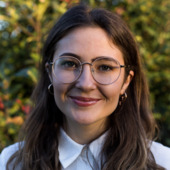

Silvia Dominguez
Professionnelle de recherche en sciences des aliments, Université Laval
Silvia Dominguez est une ingénieure alimentaire spécialisée dans l'évaluation des risques liés à la innocuité alimentaire, la gestion des allergènes, l'analyse statistique et la modélisation de données. Elle est titulaire d'une maîtrise et d'un doctorat en sciences des aliments de l'université Rutgers (New Jersey, États-Unis). Elle a travaillé comme microbiologiste alimentaire pour l'industrie alimentaire aux États-Unis, avant de retourner au domaine académique. Elle est actuellement professionnelle de recherche à la Plateforme d'analyse des risques et d'excellence en réglementation alimentaire, hébergée par l'Institut de la nutrition et des aliments fonctionnels (INAF) de l'Université Laval (Québec, Canada), où elle gère des projets de recherche sur les allergènes, les contaminants chimiques et la fraude alimentaire, des activités de formation pour l'industrie alimentaire, et des initiatives de renforcement des capacités en matière de innocuité alimentaire pour des autorités compétentes à l'échelle internationale.
Less ![]()

Silvia Gullino
Professor of City Making, College of Built Environment, Birmingham City University
I am a Professor of City Making and a Chartered Member of the Royal Town Planning Institute (MRTPI). With an interdisciplinary background in Architecture and Urban Planning, my academic ethos centres on understanding cities as complex socio-economic, physical, environmental, and political systems. Addressing urban challenges for lasting sustainability requires integrating diverse knowledge and employing innovative methodologies.
My distinctive approach to city-making emphasizes active citizenship, gendered well-being, and fostering diverse, creative, and inclusive communities through transdisciplinary practices.
Less ![]()
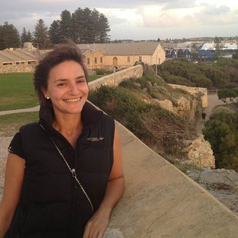
Silvia Lozeva
An academic, researcher and a lecturer.
Completed a PhD at Curtin University Sustainability Policy (CUSP) Institute on the topics of transglobal activism and migrants' (dis)connecions with nature. Lecturer in sustainable development and in other humanities disciplines for the Office of teaching and learning. Previously lecturing International Political Economy (Curtin University) and Asian Studies (University of Notre Dame Australia).
Employed previously as a researcher at John Curtin Centre of Public Policy and a sustainability consultant.
Currently working at Ethics, Equity and Social Justice office, developing and implementing strategies towards equity in higher education.
A devoted life-long Go player.
Less ![]()

Silvia Maioli
Senior Research Specialist and Associate professor, Neurobiology, Karolinska Institutet
I am research group leader and Docent (Associate Professor).
I have defended my PhD at the University of Bologna in 2011 and did my postdoc at KI. I have been working within the neuroscience field in relation to Alzheimer’s Disease (AD) since my PhD and my work is based on investigating the mechanisms for risk factors for Alzheimer's Disease focusing on ApoE, cholesterol metabolism and oxysterols.
I have extensive knowledge in the field of mouse behavior and mouse models of neurodegenerative disease and I am Facility Coordinator for the Animal Behavior Core Facility (ABCF) at KI. In addition, I work with different molecular biology techniques.
Research
My research is focused on understanding the biological mechanisms behind risk factors for neurodegenerative diseases like Alzheimer's Disease (AD), with a focus on sex-differences.
Changes in brain cholesterol metabolism occurs in early stages of the disease and are considered important drivers of the neurodegenerative cascades in AD. AD risk factors such as hypercholesterolemia, hypertension, lifestyle, affect brain cholesterol metabolism. I study the role of cholesterol metabolites and transporters in the brain during neurodegenerative processes by using in vitro and in vivo models, as well as human samples. In addition, I am interested in the connection between cholesterol metabolism and sex hormones. Sex hormones, including estrogen and testosterone, originate from cholesterol and promote neuroprotective functions in the brain. Both cholesterol and sex hormones are shaped by genes and the environment (for example medications, diet), serving as potential preventive and therapeutic targets for AD.
Another topic in the lab is multi-medication therapies and related sex-differences. We study the effects of different combinations of drugs commonly used in AD comorbidities using mouse models and human data from different clinical cohorts
Less ![]()
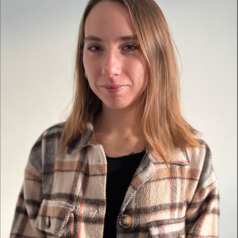
Silvia Malagoli
Postdoctoral Researcher in Fisheries Science, University of Strathclyde
I am an Italian living in Scotland since 2019, currently postdoc at the University of Strathclyde, where I also did my PhD, which I am about to finish. I did my BSc in Aquaculture at the Alma Mater Studiorum in Bologna (IT) and my MSc in Marine Biology at the University of Bremen (DE). The broad area of my research is fisheries science, at the moment I am focusing on mathematical modelling of fish population. Food security, and especially seafood security, is a challenge I feel very committed to and will be the focus of my future research.
Less ![]()
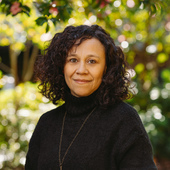
Silvia Montaña-Niño
Lecturer, Centre for Advancing Journalism, The University of Melbourne
Less ![]()
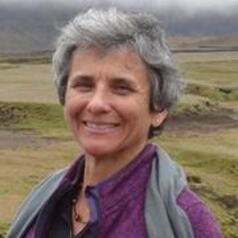
Silvia Serrao-Neumann
Associate Professor of Environmental Planning, University of Waikato
Associate Professor Silvia Serrao-Neumann is the convenor for the Environmental Planning Programme. She is co-leading a team of researchers in the MBIE Endeavour project 'Reducing flood inundation hazard and risk across Aotearoa-New Zealand' ($15.5m, 2020-2025). She is also a partner investigator in the Australian Research Council Discovery (DP160103371) “Managing environmental change through planning for transformative pathways” (AU$581,000), and in the BIOTA SYNTHESIS - Nucleus of Analysis and Synthesis of Nature-Based Solutions (FAPESP 2020-2025). She is an Adjunct Research Fellow at the Cities Research Institute, Griffith University, Australia.
Before joining The University of Waikato she was a Senior Research Fellow for the Cooperative Research Centre for Water Sensitive Cities at the Cities Research Institute, Griffith University, Australia. Her association with the CRC-WSC involved the investigation of catchment scale landscape planning for water sensitive city-regions in light of climate change. Since 2009 she has participated in many interdisciplinary research projects relating to climate change adaptation, including the South East Queensland Climate Adaptation Research Initiative (SEQ-CARI), a 3-year multi-sectoral study of climate change adaptation in South East Queensland, focusing on the sectors of urban planning and management, coastal management, physical infrastructure, emergency management and human health; and the Climate Change Adaptation for Natural Resource Management in East Coast Australia.
Her research also focuses on community planning for disaster recovery and resilience, scenario planning, and action/ intervention research applied to planning for climate change adaptation.
She has published widely on topics related to water resource management, climate change adaptation, and urban and regional planning.
Less ![]()

Silvia Hurtado González
Profesora del Departamento de Lengua Española de la Facultad de Filosofía y Letras, Universidad de Valladolid
Licenciada y doctorada en Filología Hispánica, es profesora Titular del Departamento de Lengua Española de la Facultad de Filosofía y Letras de la Universidad de Valladolid. Como docente, ha impartido clases en el Grado en Español de la Facultad de Filosofía y Letras, en el Grado en Educación Primaria de la Facultad de Educación y en el Grado de Logopedia de la Facultad de Medicina, así como en el Máster en Español como Lengua Extranjera: Enseñanza e Investigación de dicha Universidad. Además, es profesora-tutora de la Universidad Nacional de Educación a Distancia. Es secretaria de la colección “UvaEle: español como lengua extranjera” y es responsable de los cursos sobre norma y corrección lingüística en la Escuela de Doctorado. Precisamente, una de sus líneas de investigación es el análisis de la competencia textual en el ámbito universitario. Sin embargo, su investigación más destacada gira en torno a dos aspectos. El primero de ellos es el estudio de las variedades del español en la prensa, que cuenta ya con varios análisis comparativos de distintos periódicos de habla hispana centrados en diversas cuestiones lingüísticas presentes en este tipo de textos, como por ejemplo, el análisis de determinadas formas verbales y el estudio de las formas de transmisión de la palabra ajena. En este ámbito, ha colaborado en proyectos de reconocido prestigio y ha participado en varios congresos de proyección internacional. El segundo es el estudio del lenguaje periodístico en la prensa decimonónica, principalmente en el espacio de la titulación, si bien su interés abarca cualquier etapa de la historia de la lengua.
Less ![]()
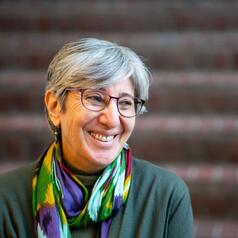
Sima Samar
Senior Fellow, The Fletcher School, Tufts University
As a girl and a member of Afghanistan’s Hazara minority, Sima Samar was not born to power.
Even so, she rose to an unprecedented level of influence. A Nobel Peace Prize nominee, she sat on advisory panels to the United Nations secretary-general and became Afghanistan’s first minister of women’s affairs and deputy prime minister of the Afghanistan Interim Administration in December 2001. She chaired the Afghanistan Independent Human Rights Commission from 2002 to 2019.
That couldn’t happen since the Taliban’s return to power in 2021, she believes. “Growing up in Afghanistan, as a girl, I have to say that it was much better than it is today,” said Samar, a visiting fellow at The Fletcher School and a Tufts Scholar at Risk.
Today the Taliban, which retook control of Afghanistan in August 2021 as U.S. and other international forces withdrew, has outlawed girls from attending school beyond sixth grade. The women employees of Shuhada, a network of hospitals and schools Samar founded, also face restrictions. Instructors have been asked to teach from home. Many women in medicine are allowed to keep practicing, due to the sensitivities of treating female patients, but “they are very, very careful,” said Samar, who started her career as a medical doctor.
“They dress the way they’re supposed to. They used to work long after dark, but now that’s not the case,” she said. “They’re not doing anything to give anyone a reason to cause a problem.”
For Samar, who once in addition to chairing the Afghanistan Human Rights Commission also headed the Commission on the Prevention of Torture, current conditions represent a painful break from more promising times.
She was in the U.S. in August 2021, when the Taliban retook control of Afghanistan for the first time in nearly 20 years. She had arrived in America that June with a coast-to-coast itinerary of visits to family she hadn’t seen during the height of COVID.
Less ![]()
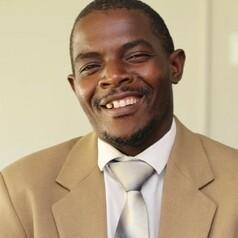
Simbarashe Murozvi
Lecturer in economics, University of the Western Cape
Simbarashe Murozvi is a lecturer at the Department of Economics, University of the Western Cape. He previously worked at a law firm before joining the University of the Western Cape as a part-time lecturer in 2019. Currently, he is pursuing PhD studies and his research interest are in labour, International trade and development economics.
Less ![]()

Simin Fadaee
Senior Lecturer in Sociology, University of Manchester
I have been educated in Iran (University of Tehran), India (Jawaharlal Nehru University), South Africa (University of KwaZulu-Natal) and Germany (University of Freiburg). I worked at Humboldt University of Berlin for several years before moving to the UK. My books include: Social Movements in Iran: Environmentalism and Civil Society (Author, Routledge 2012), Understanding Southern Social Movements (Editor, Routledge 2016), Contemporary Megaprojects: Organization, Vision and Resistance in the 21st Century (Co-editor, Berghahn 2021) and Marxism, Religion and Emancipatory Politics (Co-editor, Palgrave-Macmillan 2022). I am currently president of the International Sociological Association's Research Committee on Social Classes and Social Movements.
Less ![]()
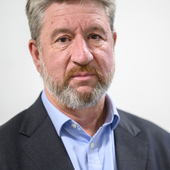
Simon Bailey
Chair, International Policing and Public Protection Research Institute, Anglia Ruskin University
Less ![]()
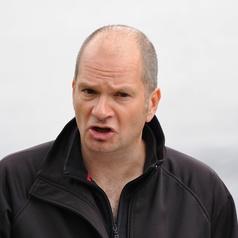
Simon Bainbridge
Professor in English, Lancaster University
Simon Bainbridge's main research interest is in the relationship between the writing of the Romantic period and its historical contexts. He is the author of 'Napoleon and English Romanticism' (Cambridge University Press, 1995) and 'British Poetry and the Revolutionary and Napoleonic Wars' (Oxford University Press, 2003) and the editor of 'Romanticism: A Sourcebook'. He has published widely on the evolution of mountaineering and its literature, particularly in the Romantic period, including the monograph 'Mountaineering and British Romanticism: The Literary Cultures of Climbing, 1770-1836' (Oxford University Press, 2020).
Less ![]()
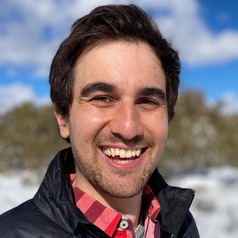
Simon Blouin
CITA National Postdoctoral Fellow, Astrophysics, University of Victoria
Simon Blouin is a CITA National Fellow in astrophysics at the University of Victoria. He holds a PhD in Physics from the Université de Montréal (2019). He was previously a Banting Fellow at the University of Victoria (2021-23) and a Director's Postdoc Fellow at Los Alamos National Lab (2019-21).
Simon uses a vast array of numerical simulation techniques to build improved physics models of white dwarfs. By comparing those models to astronomical observations, he uses white dwarfs as accurate cosmic clocks, probes of planetary evolution, and tracers of supernovae.
Less ![]()
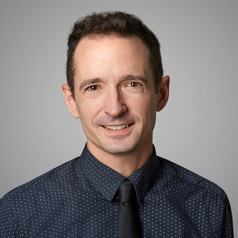
Simon Bourdeau
Professor, Département d'analytique, opérations et technologies de l'information, Université du Québec à Montréal (UQAM)
PMP, Scrum Master, CBCI, BAA-Finance
Prosci Certified Change Practitioner
LEGO Serious Play facilitator,
Project management and team management
(collaboration, diversity, improvisation, etc.)
Innovation & Creativity
Operational risks
Less ![]()
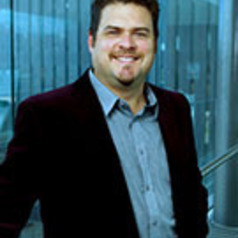
Simon Butt
Professor of Indonesian Law, University of Sydney
Professor of Indonesian Law, Sydney Law School
Associate Director of Centre for Asia and Pacific Law, University of Sydney, and member of Sydney Southeast Asia Centre
Less ![]()
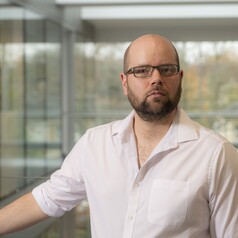
Simon Cameron
Senior Lecturer in Microbiology, School of Biological Sciences, Queen's University Belfast
My research involves the application of mass spectrometry to health and disease. I have a particular focus on human milk profiling and developing methods to take a systems biology approach to understanding the role that different components of human milk play in the development of the infant microbiome.
Less ![]()
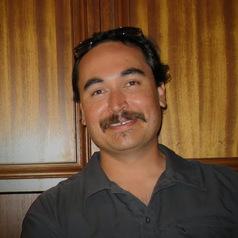
Simon Campbell
Senior research fellow and lecturer, Monash University
Simon Campbell has a Diploma in Aerospace Engineering (RMIT), a Bachelor of Arts (Languages, Monash University), and a PhD in Astrophysics (Monash University). He has worked as a researcher in Spain and Taiwan, Germany and Australia. In a previous life he worked at CSIRO.
Less ![]()

Simon Camponuri
PhD Candidate in Environmental Health Sciences, University of California, Berkeley
Simon Camponuri, MPH, is an Environmental Health Sciences PhD Candidate at the UC Berkeley School of Public Health where he studies how climate and environmental change influence infectious disease transmission in California. His current research examines the myriad influences of the environment on Valley fever epidemiology, including the effect of precipitation, heat, and drought on the incidence and seasonal patterns of Valley fever, the importance of occupation in determining pathogen exposure risk, the relationship between land use change and Valley fever risk, the role of animals in the life cycle and surveillance of Valley fever, and the future impact of climate change on Valley fever emergence in California and beyond.
Less ![]()
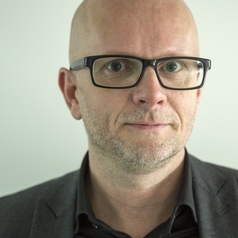
Simon Chadwick
Simon Chadwick’s research and teaching interests lie in the areas of sponsorship, sport marketing and commercial strategy in sport, which means that his work covers a diverse range of subjects including football, motor racing, rugby, athlete endorsements, sports branding, fan behaviour, the Olympic Games, the Indian Premier League and Grand Slam tennis tournaments
Simon is editor of ‘Sport, Business and Management: An International Journal’ and is a former editor of the ‘International Journal of Sports Marketing and Sponsorship’. He continues to serve as an editorial board member for several other sport journals, and has authored and published more than 600 articles, conference papers and books on sport. His academic research has appeared in journals including Sloan Management Review, the Journal of Advertising Research, Thunderbird International Business Review, Management Decision, Marketing Review and Sport Marketing Quarterly
Simon has recently co-edited the books ‘Managing Football: An International Perspective’ (Elsevier) and ‘Sport Entrepreneurship: Theory and Practice’ (F.I.T.), and has also been co-editor of ‘The Business of Sport Management’ and ‘The Marketing of Sport’ (Financial Times Prentice Hall), and ‘International Cases in the Business of Sport’ (Elsevier)
Alongside his books, Chadwick has created a Sport Marketing talk series for Henry Stewart Publishing, is editor of a Sport Marketing book series for Butterworth-Heinemann, and is a visiting academic at IESE and Instituto de Empresa in Spain; the University of Paris, France; and the University of Pretoria in South Africa. Amongst his other research and consultancy activities, Simon has worked with numerous organisations involved in sport including Mastercard, Atletico Madrid, the International Tennis Federation, FC Barcelona, UEFA, the Qatar Olympic Committee, Tottenham Hotspur, Michelin Motorsport, Sport Business Group, The Economist and the British Council
In addition, Chadwick's views on sport are regularly covered by the media; he has been quoted more than 10,000 times in publications across the world including in the Wall Street Journal, the New York Times, Forbes, Time, the Financial Times, the Economist, Business Week, Der Spiegel, El Pais, Le Monde and China Daily. He also regularly appears on television, where he has commented on sport for broadcasters such as CNN, Bloomberg, Al Jazeera, the BBC, CNBC, Sky and CCTV. Simon is a member of a Qatari government sport think-tank; and he sits on the Advisory Board of StreetGames (an organisation which takes sport to disadvantaged communities). He has been identified by The Independent newspaper as being one of the top-10 business tweeters in the UK, and by The Times as being the “guru” of sport management in Britain
Less ![]()
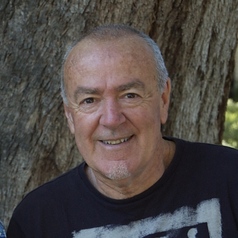
Simon Chapman
Emeritus Professor in Public Health, University of Sydney
Simon Chapman AO PhD FASSA HonFFPH(UK) is Emeritus Professor in Public Health at the University of Sydney. He has published over 500 articles in peer reviewed journals and 19 books and major reports. His H index is 53 and he has over 10,500 citations.
In 1997 he won the World Health Organisation's World No Tobacco Day Medal and in 2003 he was voted by his international peers to be awarded the American Cancer Society’s Luther Terry Award for outstanding individual leadership in tobacco control. In 2008 he won the NSW Premier’s Cancer Researcher of the Year medal; the Public Health Association of Australia’s Sidney Sax medal; and was a NSW finalist in Australian of the Year. He was deputy editor (1992-1997) then editor (1998-2008) of the British Medical Journal's, Tobacco Control and is now its Editor Emeritus. He was made an Officer in the Order of Australia in 2013 and was named Australian Skeptic of the Year
His recent research involves examining policy how health and medical issues are covered in the news media; how people stop smoking unaided; the psychogenic aspects of wind farms and health; and characteristics of public health research (and its dissemination) which impact on public health policy.
Less ![]()

Simon Cork
Senior Lecturer in Physiology, Anglia Ruskin University
Dr Cork obtained his PhD in neurophysiology from St Aidan’s College, Durham University, in 2013. His doctoral research focussed on the neural control of blood pressure and identified neurochemical changes that underpin increased autonomic drive to the cardiovascular system in hypertension. This was followed by post-doctoral research at University College London and a research fellow position at Imperial College London, in the laboratory of Prof Sir Stephen Bloom. His post-doctoral research specialised in the regulation of hunger and body weight, particularly the role of gut hormones in the control of appetite and their therapeutic potential in the treatment of obesity.
Dr Cork is passionate about science communication and has appeared on numerous national and international TV and radio programmes and is regularly quoted in newspapers particularly on the topic of obesity, but more recently on various aspects of human physiology.
With a passion for widening access to higher education for individuals from under-represented backgrounds, Dr Cork sits on numerous national committees focussed on widening access to medical schools and is involved in instigating a number of initiatives within the School of Medicine to attract and retain such students.
Less ![]()
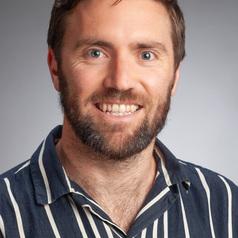
Simon Davies
Lecturer in Forensic Psychology, Te Herenga Waka — Victoria University of Wellington
Less ![]()
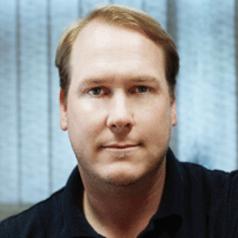
Simon Enoch
Adjunct professor, Department of Politics and International Studies, University of Regina
Simon Enoch holds a Masters Degree in Work & Society from McMaster University and a PhD in Communication & Culture from Ryerson and York University. He is the Director of the Saskatchewan Office of the Canadian Centre for Policy Alternatives. Simon has written extensively on labour issues in the province. He is currently writing a book on Saskatchewan politics with Professor Charles Smith.
Less ![]()
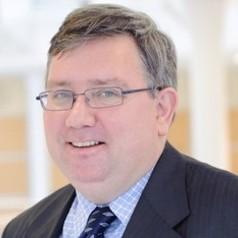
Simon Evenett
Professor of International Trade and Economic Development, University of St.Gallen
Simon Evenett (UK) is Academic Director at the St.Gallen MBA and Professor of International Trade and Economic Development. His expertise is in business-government dealings, protectionism, trade negotiations, the World Trade Organisation, emerging markets, and competition in international markets.
Prof. Evenett obtained his Ph.D. in Economics from Yale University and a B.A. (Hons) in Economics from the University of Cambridge. He has taught at the University of Oxford, the University of Michigan Business School, and Rutgers University. In addition, Prof. Evenett has served twice as a World Bank official and has been a Non-Resident Senior Fellow in the Economics Studies programme of the Brookings Institution.
Less ![]()
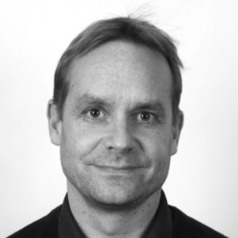
Simon Feeny
Professor of Economics, College of Business and Law, RMIT University
Simon Feeny is professor in RMIT's School of Economics, Finance and Marketing and is a co-director of the University's Centre for International Development.
Less ![]()
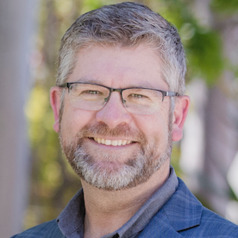
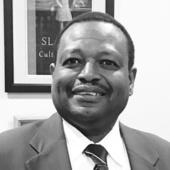
Simon Gikandi
Professor of English and Chair of the English Department, Princeton University
Less ![]()

Simon Goldstein
Associate Professor, Dianoia Institute of Philosophy, Australian Catholic University, Australian Catholic University
I am an associate professor at the Dianoia Institute of Philosophy at ACU. In 2023, I am a research fellow at the Center for AI Safety. My research focuses on the ethical implications of the development of agency in AI systems.
Less ![]()
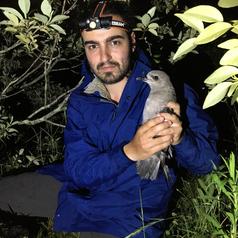
Simon Gorta
PhD Candidate in ecology, UNSW Sydney
Simon is a PhD candidate at UNSW Sydney. He is particularly interested in how seabirds can be used as indicators of environmental change. He is broadly interested in species and ecosystem conservation, and has a passion for animal ecology and natural history, particularly birds. He has experience working with government and non-government stakeholders, and has worked as a research assistant on numerous research, management, and policy-related projects, and collaborates with researchers locally and internationally.
Less ![]()

Simon Greenhill
Associate Professor, University of Auckland
I research why and how people created all the amazing languages around us, and what they tell us about human prehistory.
I use (mainly) Bayesian phylogenetic methods to tackle these questions and have investigated everything from how the Austronesian peoples settled the Pacific, to modelling the co-evolution of linguistic structure. And I have built a number of large-scale databases to help answer these questions.
Less ![]()
- Market Data























